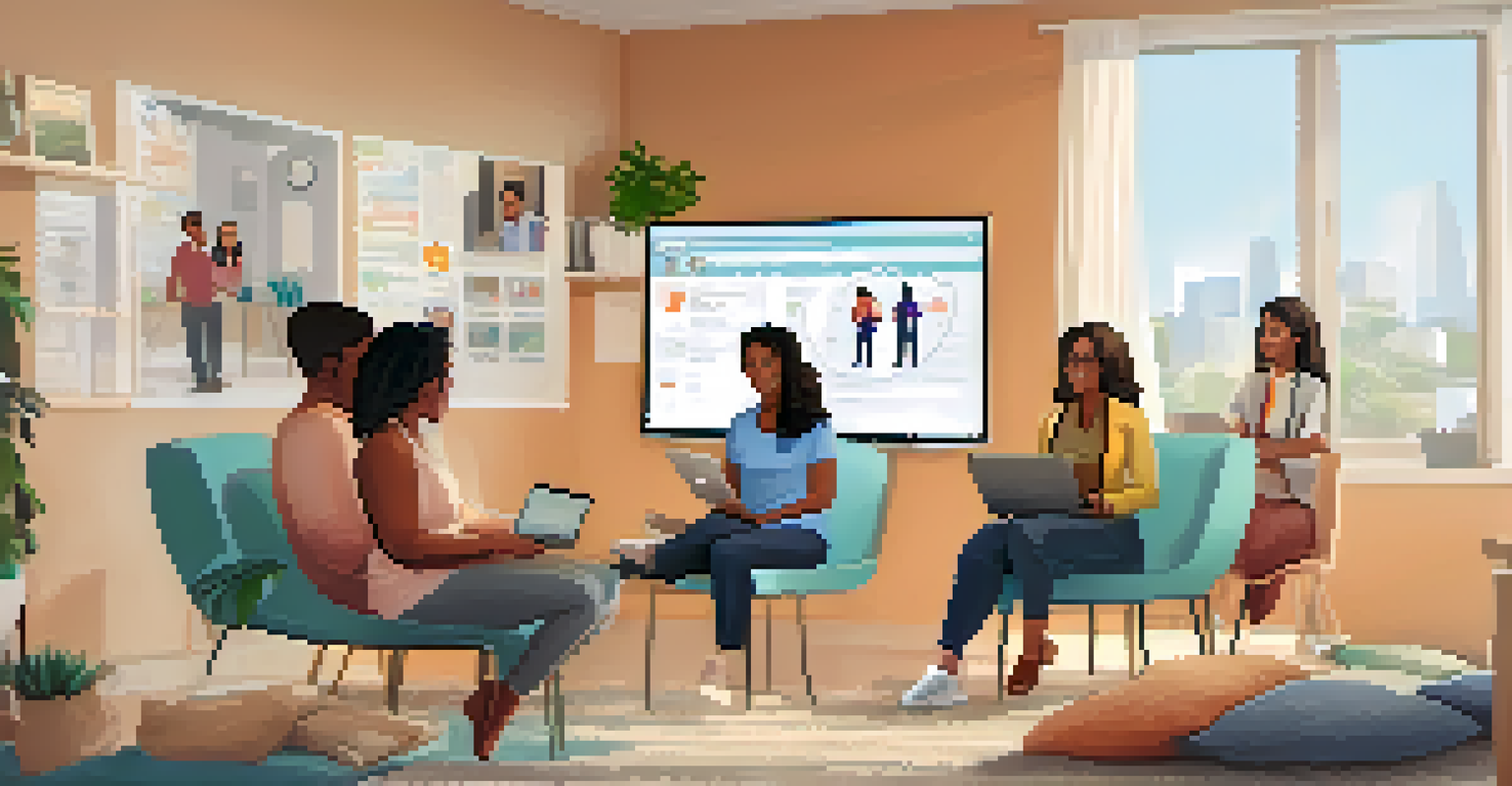Health Literacy: Digital Resources for Informed Patients

Understanding Health Literacy: Why It Matters
Health literacy refers to the ability to obtain, process, and understand basic health information. It's crucial for making informed decisions about one's health care. A person with high health literacy can navigate the healthcare system, understand medical instructions, and participate actively in their own care.
Health literacy is a fundamental skill that empowers individuals to navigate the healthcare system effectively.
When patients lack health literacy, they may struggle to comprehend their conditions or treatment plans, leading to misunderstandings or poor health outcomes. This can result in unnecessary hospital visits or the inability to manage chronic diseases effectively. Essentially, health literacy empowers individuals to take control of their health.
In today's digital age, elevating health literacy is more important than ever. With the abundance of online health resources, patients can access reliable information at their fingertips. However, it’s vital that they can discern credible sources from misleading ones.
The Rise of Digital Health Resources
Digital health resources have surged in popularity, especially during the pandemic. Telemedicine, online health forums, and mobile health applications have transformed how patients seek information and care. This shift offers unprecedented convenience, allowing individuals to access health resources anytime, anywhere.

Websites like the Centers for Disease Control and Prevention (CDC) and the World Health Organization (WHO) provide trustworthy information on various health topics. These resources often feature easy-to-read formats and visuals, making complex medical information more digestible.
Importance of Health Literacy
Health literacy enables individuals to understand health information, leading to better decision-making and health outcomes.
Moreover, social media platforms have become spaces for sharing health-related content. While this can be beneficial, it also highlights the need for critical thinking, as not all information shared online is accurate or reliable.
Key Websites for Reliable Health Information
When searching for health information online, it's crucial to choose reputable sources. Websites such as MedlinePlus and Mayo Clinic offer extensive databases on diseases, conditions, and medications, all vetted by medical professionals. These sites not only provide information but also link to relevant articles and studies for deeper understanding.
In the age of information, the ability to critically evaluate sources is essential for making informed health decisions.
Another reliable resource is Healthfinder, which allows users to search by topic or audience, helping patients find tailored information. It also offers tools to help individuals evaluate their health and wellness goals, making it a comprehensive resource for informed decision-making.
Lastly, patient advocacy organizations often provide valuable insights and resources. For instance, organizations like the American Heart Association or the American Diabetes Association offer guidance, support networks, and educational materials tailored to specific conditions.
Mobile Apps: Health at Your Fingertips
Mobile applications have revolutionized how patients engage with their health. From medication reminders to symptom trackers, these apps help users manage their health more effectively. For example, MyFitnessPal offers nutritional information while tracking dietary habits, helping users make healthier choices.
Apps like WebMD and HealthTap provide instant access to health information and even allow users to consult with healthcare professionals online. This level of accessibility can enhance a patient's understanding of their health and encourage proactive management.
Digital Resources Transform Care
The rise of digital health tools, like telemedicine and mobile apps, has made healthcare information and services more accessible than ever.
However, it's essential for users to research app credibility before downloading. Reading user reviews and checking for endorsements from health organizations can ensure they are choosing reliable tools.
Telehealth: A New Era of Patient Care
Telehealth has dramatically changed the landscape of healthcare, allowing patients to consult with healthcare providers remotely. This is especially beneficial for those in rural areas or with mobility challenges. Through video calls, patients can discuss symptoms and receive advice without the need to travel.
Moreover, telehealth appointments often allow patients to access specialists who might not be available locally. This expands their options and can lead to better health outcomes, as they receive expert care tailored to their needs.
However, it's essential for patients to familiarize themselves with how telehealth works. Understanding the technology and what to expect during an appointment can enhance the experience and ensure effective communication with their healthcare provider.
Online Support Groups: Connecting Patients
Online support groups have become invaluable for patients seeking community and support. These platforms allow individuals to connect with others facing similar health challenges, sharing experiences and advice. For example, platforms like PatientsLikeMe offer a space for users to track their conditions and share insights.
These digital communities can provide emotional support and practical tips, helping patients feel less isolated. They create a sense of belonging, which can be crucial for mental well-being during health struggles.
Critical Thinking in Health Info
Developing critical thinking skills is essential for evaluating online health information and ensuring its credibility.
However, while these groups can be beneficial, it's important to approach them with caution. Patients should remember that individual experiences may vary and not every piece of advice will be applicable to their situation.
Evaluating Health Information: Critical Thinking Skills
With so much health information available online, critical thinking is essential for evaluating resources. Patients should ask themselves: Who authored the information? Is it backed by scientific research? Are there citations for the claims made? This scrutiny can help distinguish credible sources from unreliable ones.
Additionally, looking for websites that provide clear contact information and credentials can signal reliability. Transparency about authors and their qualifications is a good indicator of trustworthy content.

Encouraging patients to develop these critical skills can empower them to navigate the digital health landscape more effectively. This way, they can confidently make informed decisions about their health.